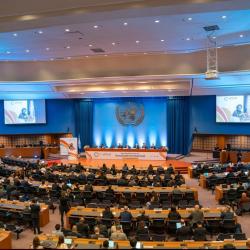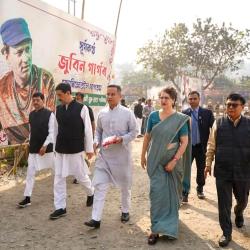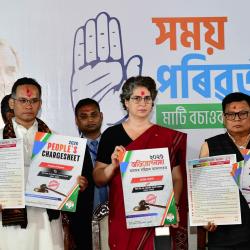Within less than two months of returning to power, the National Democratic Alliance (NDA-III) Government has revived its 2018 proposal to curtail the autonomy of the Information Commissions established under The Right to Information Act, 2005 (RTI Act). Readers will remember, a similar attempt was made exactly one year ago but the Bill to assume power to regulate the tenure, salaries and allowances of Information Commissioners across the country was not tabled in Parliament. Perhaps the widespread protest from citizenry and the media supported by the Opposition Parties was the reason for the government backtracking. Emboldened by the big majority that it has attained in the 17th Lok Sabha, the NDA Government is back to its favourite past time- striving to curtail the efficacy of the RTI Act. According to the Revised List of Business, the Government is likely to table the Bill in the Lok Sabha today (19th July, 2019).
The text of the RTI Amendment Bill making the rounds of cyberspace is similar to the 2018 Bill, word for word. The slightly expanded paras #3 and 5 of the Statement of Objects and Reasons attached to the Bill are the only variation over the previous document. Click here for the text of the RTI Amendment Bill, 2019.
Problematic areas in the RTI Amendment Bill, 2019
In 2018 many experts and activists wrote eloquently and passionately about the regressive nature of these proposals to amend the RTI Act. While agreeing with their criticism, I am once again sharing our arguments against these amendment proposals, circulated last year, for the reference of readers. The crux of our arguments is explained below:
1) The amendment proposals contradict the Central Government's 2017 action of upgrading and harmonising the salary packages of other Statutory Tribunals and Adjudicating Authorities established under various Central Laws:
In June, 2017, through The Finance Act (see Section 156 onwards in Part XIV of the Act) the Central Government upgraded the salaries, allowances, eligibility criteria and the manner of appointment of the Chairpersons/Presiding Officers and Members of 19 Tribunals and Adjudicating Authorities- all of which have been established under a specific law and whose members are not constitutional authorities. Some of these Tribunals are: Central Administrative Tribunal, National Green Tribunal (NGT), Armed Forces Tribunal, Appellate Tribunal for Electricity, Railway Claims Tribunal, Intellectual Property Appellate Board, Debts Recovery Appellate Tribunal, Central Excise and Customs Tribunal, Telecom Disputes Settlement Appellate Tribunals, Securities Appellate Tribunal, Income Tax Appellate Tribunal, Authority on Advance Ruling and even the Film Certification Appellate Tribunal (FCAT) etc.
The salaries of the Chairpersons of 17 of these 19 Tribunals were hiked to the same levels as that of the Election Commissioners (INR 2,50,000) while the salaries of the Members were upgraded to the levels of High Court Judges (INR 2,25,000). Readers will recall that the Chief Election Commissioner (CEC) and Election Commissioners (ECs) are entitled to draw the same level of salaries as Judges of the Supreme Court of India. It is not clear whether the salaries of the CEC and the two ECs who are constitutional authorities have been upgraded yet. The information regarding salaries paid to them, as per the proactive information required to be disclosed under Section 4(1)(b)(x) of the RTI Act, continues to show INR 90,000 for all three of them. Either their salaries have not been upgraded or the information on their website has not been updated.
What is more intriguing is that the salaries of the Chairpersons and Members of the statutory Tribunals mentioned above were upgraded even before the President of India gave his assent to the law which upgraded the salaries of the Supreme Court and High Court Judges. This law was gazetted in January 2018, six months after the salaries of the Statutory Tribunals were hiked. It seems, the Central Government had no problems raising the salaries of Statutory Tribunals mentioned above, before upgrading the salaries of the SC and HC Judges who are constitutional authorities. So the justification that the Central Government is giving for amending the RTI Act, namely, that the Information Commissions being statutory authorities cannot be treated on par with constitutional authorities like the ECI does not sound convincing at all.
2) The proposed amendments contradict the rationale informing the October 2017 recommendations of the Law Commission of India for harmonising the salaries and terms and conditions of service of other statutory Tribunals established under various Central laws:
The Law Commission of India (LCI) in its 272nd Report on Assessmentof Statutory Frameworks of Tribunals in India released in October, 2017 called for the harmonisation of the salaries and allowances of many of the statutory Tribunals mentioned above. By then the Central Government had already taken action in this regard. LCI did not discuss the salaries and allowances paid to the Information Commissioners in its report. Perhaps this was omitted as their salaries already stood fixed at the same levels which they were recommending for other statutory Tribunals. So the spirit of the recommendations of LCI applies equally to the Information Commissions and there is no reason to treat them differently.
3) The proposed amendments may violate the Information Commissioners' right to be treated equally by the law as guaranteed under Article 14 of the Constitution:
The Information Commissions perform quasi-judicial functions much like the statutory Tribunals and Adjudicating Authorities whose salaries were hiked in June 2017.In fact, except the NGT and the Film Certification Appellate Tribunal, none of the other Statutory Tribunals or Adjudicating Authorities deal with fundamental rights matters. There is no reason why Information Commissioners should be subjected to a different treatment. So the amendment proposals do not answer satisfactorily to the test of "intelligible differentia" which is a requirement for treating unequals differently under Article 14 of the Constitution of India. So it is submitted that the amendments to the RTI Act if carried out may fall foul of the fundamental guarantee of the right to equality before law to every person.
4) The proposed amendments seek to vest excessive powers of delegated legislation with the Central Government:
The amendment proposals are a blow to the federal scheme of the RTI Act. If enacted into law they will create two sets of laws applicable to salaries paid in the SICs- one made by the State Governments for staffers of SICs under Section 27(2) of the RTI Act and the other which the Central Government hopes to make for the State Information Commissioners. Further, the salaries of Information Commissioners in the States are paid out of the Consolidated Fund of the concerned State over which the Central Government has no control. So the RTI Amendment Bill is another example of seeking excessive delegation of powers by the Central Government.
5) The absence of consultation on the proposals prior to their finalisation is a violation of the 2014 Pre-Legislative Consultation Policy:
As already pointed out by several critics, the Central Government has not conducted any consultation with the primary stakeholders, namely, the citizenry and the Information Commissions on the amendment proposals. This is a clear violation of the 2014 policy on pre-legislative consultation which must precede all law-making exercises or amendments to existing laws.
Click here to read the full critique of the RTI Amendment Bill and the Factsheets comparing the Statutory Tribunals and Adjudicating Authorities with the Information Commissions under the following criteria: (2nd attachment)
a) size of the Tribunal/Appellate Tribunal or Adjudicating Authority;
b) nature of proceedings;
c) appointing authority;
d) qualifications for appointing the Chairperson/Presiding Officer and other Members;
e) search-cum-selection process;
f) tenure;
g) erstwhile and salaries as revised in 2017;
h) the forum where their decisions may be appealed against; and
i) whether they are subject to directions from the Central Government.
Please circulate this email widely. Friends in the media may kindly note that this email is not being shared with anybody exclusively. Please feel free to use these materials in your own writings with due acknowledgement to the source.
In order to access our previous email alerts on RTI and related issues please click on: www.humanrightsinitiative.org/blog. If you do not wish to receive these email alerts please send an email to this address indicating your refusal.
- 7798 reads










Add new comment